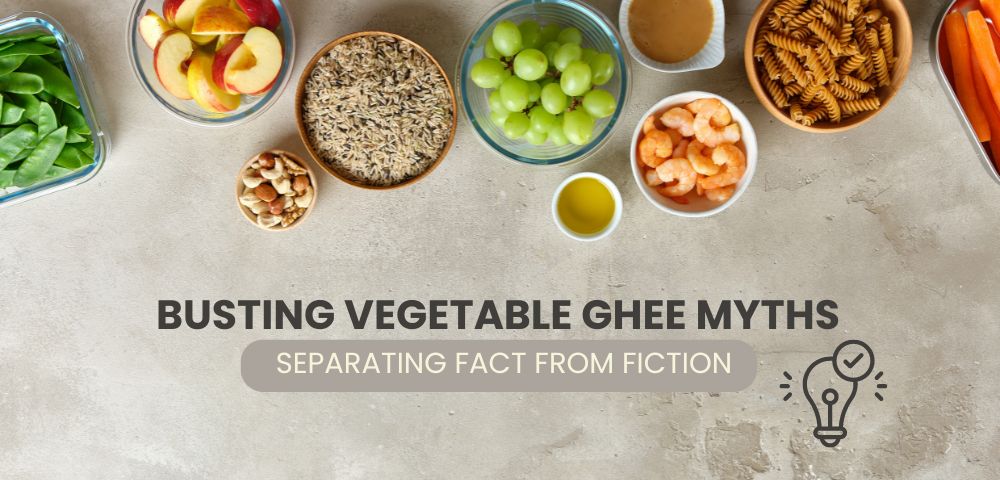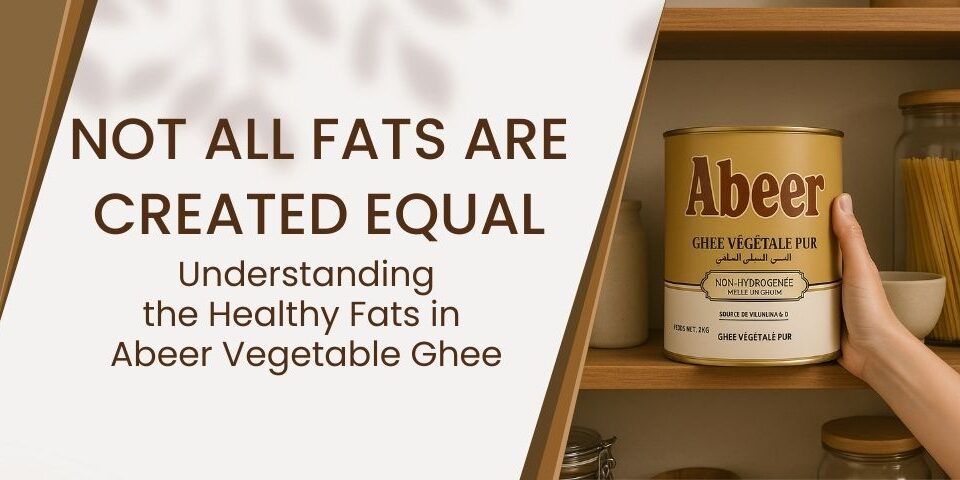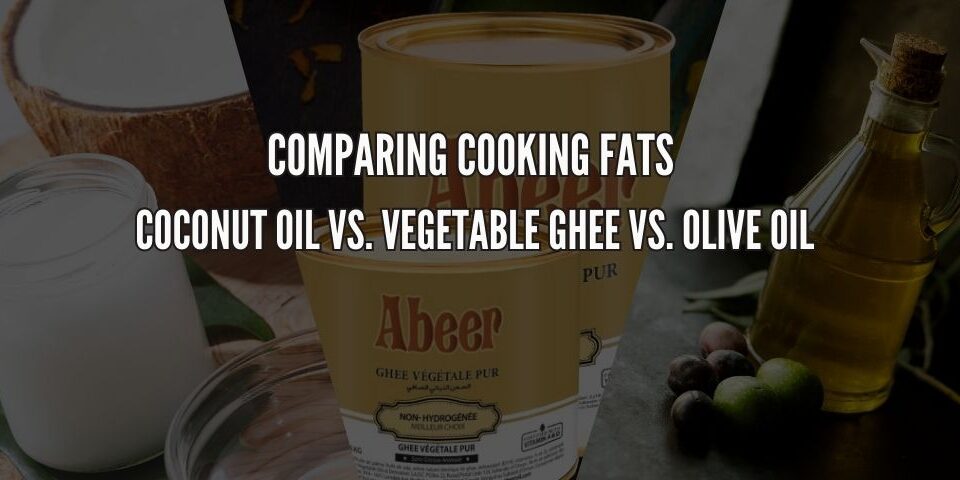
The Health Benefits of Vegetable Ghee: A Nutritious Choice
August 6, 2024
5 Delicious Vegan Ghee Recipes You Need to Try
September 18, 2024Busting Vegetable Ghee Myths: Separating Fact from Fiction

Vegetable ghee has gained significant popularity as a plant-based alternative to traditional ghee. While we’ve explored the benefits of vegetable ghee in our previous article, it’s also surrounded by misconceptions. Let’s dispel some common myths about vegetable ghee and shed light on the truth.
Myth 1: All Vegetable Ghee is Unhealthy
One of the most pervasive myths about vegetable ghee is that it’s inherently unhealthy. While it’s true that some vegetable ghee products may contain unhealthy trans fats, this is not the case for all. High-quality vegetable ghee made from carefully selected oils can be a healthy addition to your diet. It’s essential to check the product label for information about the type of oils used and the presence of trans fats. Look for vegetable ghee made with healthy options like palm oil, coconut oil, or sunflower oil.
Myth 2: Vegetable Ghee Tastes Artificial
Contrary to popular belief, vegetable ghee can have a neutral or even slightly buttery flavor. Modern production methods have significantly improved the taste of vegetable ghee, making it a delicious and versatile cooking ingredient. High-quality vegetable ghee can seamlessly blend into various dishes without compromising flavor. It can add a subtle richness to baked goods, enhance the savory notes in vegetables, or provide a base for flavorful sauces.
Myth 3: Vegetable Ghee is Not Suitable for High-Heat Cooking
This is a misconception. Many vegetable ghee products are specifically designed to withstand high temperatures, making them ideal for stir-frying, sautéing, and grilling. Check the product label for the smoke point to ensure it’s suitable for your cooking needs. A high smoke point indicates that the ghee can be used at higher temperatures without breaking down and producing harmful compounds.
Myth 4: Vegetable Ghee is a Poor Substitute for Traditional Ghee
While vegetable ghee and traditional ghee have different nutritional profiles, both can be used interchangeably in many recipes. Vegetable ghee offers a plant-based alternative with its own unique set of benefits, such as being lactose-free and suitable for vegan diets. It can be a healthy and delicious choice for people with dietary restrictions or those looking to reduce their dairy intake. Traditional ghee offers a richer, nuttier flavor that some may prefer, but vegetable ghee can add a similar depth to dishes.
The Truth About Vegetable Ghee
Vegetable ghee, when chosen wisely, can be a healthy and versatile cooking ingredient. By understanding the facts and selecting high-quality products, you can incorporate vegetable ghee into your diet with confidence. Look for vegetable ghee made with healthy oils, free from harmful additives, and with a smoke point suitable for your cooking preferences.
Remember, it’s essential to read product labels carefully and choose vegetable ghee that aligns with your dietary needs and preferences. By dispelling these common myths, we hope to empower you to make informed decisions about your cooking choices and enjoy the benefits of vegetable ghee.



